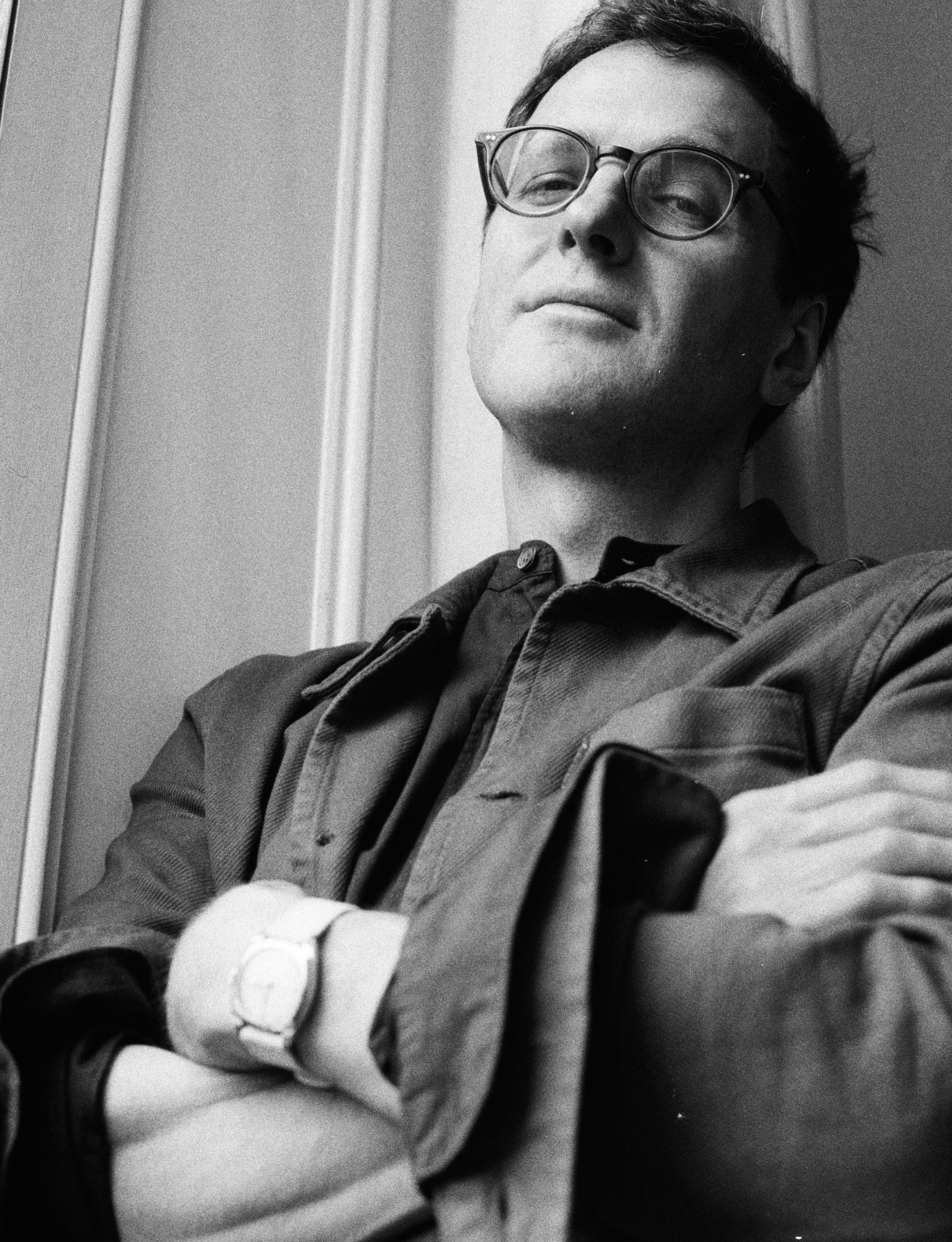Interview by Carol Wright | Photographer: Tamsin Topolski
We got to chat with musician Rob Marr about his album Book of Man, pulling from personal experiences to write songs, and making music while working in public health.

Working in public health and creating music is an unlikely combo. Does your work ever influence your music in any form?
Well, I once wrote a song about my first job in the NHS, as a complaints manager… The influence is probably more from music to public health in truth. There’s a famous definition of public health as “the art and science of preventing disease” and I feel like my life as a musician and songwriter has given me a bit more insight into the art bit than I would have had if I didn’t also do music.
There’s a popular quote, “when a writer is born into a family, the family is finished.” As you were writing Book of Man and pulling from personal experiences, were there topics that were off-limits?
Our family, like every family, has had its dark days. It’s a tricky balance to strike, but I wanted to bring those to life while at the same time respecting the fact that some of the people in the story are still alive. I think for the most part I managed that. The broader point is that our frailties and weaknesses are what make us human, and interesting. But I left out one or two of my own, for example, that it was poor health that led me to quit medical school aged 19. I sometimes wonder whether that was the right decision.
Tell our readers a bit about your song “Window of Opportunity,” my favorite on the album. What inspired the sound of that particular song?
I guess the most musically distinctive bit of that song is the classical piano-inspired instrumental that functions as a sort of bridge, both in the technical songwriting sense and also metaphorically between the first and second parts of the song, which are in different keys. I learned the first few bars of Greig’s Piano Concerto in A minor as a kid. Those amazing, crashing, descending chords have never left me, they’re absolutely riveting. They definitely influenced that section.
The other thing about that song that was really satisfying musically was the drums. There are two drum kits on the song, one that plays a very simple, understated pattern throughout, and then the more driving kit that comes in part-way through. I was absolutely smashing the kit in the studio, and although recordings never capture all the energy in the performance, those drums are also a big part of the sound.
I’m glad you like the song, it was a tricky one to figure out, how to translate it from the original piano/vocal. It really came together when I dismantled the piano part and gave the melody in the right hand to the glockenspiel. I bought the glock 2nd hand from a guy who worked in the pit as the percussionist on Phantom of the Opera since its original performance in 1986! – it had 30 years of theatre dust on it, but with a bit of elbow grease, it looks and sounds beautiful.
How did the podcast piece come about? As you were creating the Book of Man album was it a natural next step in your eyes?
They grew together organically. I knew I wanted to write something that combined the story-telling I enjoy in my songwriting with another story that linked the songs. I wrote some story, discovered a place where I wanted a song, did some songwriting, and worked back and forth between the two until it was done. My wife was working on The Crown while I was writing and recording, which is how the connection with Josh O’Connor came about. His performance definitely took the writing up a level and I got a lot of confidence from his belief in it.
During the pandemic has music been a welcome escape for you?
It’s funny, that escape has only just materialised. Last year was dominated by work and the massive admin job of putting out a self-funded podcast and album. But now it is out in the world, I’ve bought myself a posh pair of headphones and I am absolutely relishing listening to new music, diving into music podcasts (may I recommend Key Notes?), and grabbing bits of time to play. I bought the first book of Bach’s The Well-Tempered Clavier recently and a teeny tiny 6-octave piano that fits in the recess in our living room, and taking some time to reconnect with the classical music I learned as a kid has been lovely.
What advice do you have for aspiring musicians?
Work hard and enjoy it. It’s easy to get caught up in whatever you define as success and to feel like a failure if you’re not one of the fewer than 1,000 artists who make more than £100k/year from Spotify. In other words, the vast majority of musicians are not financially successful, at least not by a big bucks yardstick. But music can be the thing that makes your life interesting, for the people you meet, for the way you have to grow if you want to develop as a musician and a writer, for the never-ending landscape of knowledge that’s waiting to be explored. I’d encourage anyone to be a musician because I think it’s a fundamental part of being human, because you can do it from childhood to old age, and if you get the chance to explore it in any detail as a maker as well as a listener, you’re lucky.




